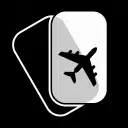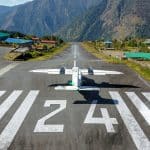How Long Does Jet Lag Last? Our Experience with Thousands of Fliers
From private jets to commercial airliners, jet lag can affect many travelers.
We’ve looked at what causes jet lag and where the term comes from. As a reminder, jet lag is related to your internal clock, also called your circadian rhythm.
Traveling between time zones can disrupt that rhythm. In essence, your body’s internal clock isn’t aligned with the new time zone in which you arrive.
That discrepancy can mean you’ll feel an urge to sleep during the day or have trouble falling asleep at night. You might be more prone to irritability or feel disoriented. You may also experience a stomach ache or other digestive symptoms.
Now, we want to answer some common questions about this condition.
How long does jet lag last? Is there any truth to the legend that jet lag symptoms last longer when flying in one direction versus the other?
Here’s what our experience with thousands of fliers tells us. Keep reading to learn about how long jet lag can last.
How long does jet lag last? How long does it take to recover from jet lag?
Fatigue, irritability, and stomach problems are all common symptoms when you soar across time zones. How long do jet lag symptoms last?
Jet lag can last anywhere from a few days to a few weeks, according to the Sleep Foundation. These week-long bouts of jet lag are uncommon, however, with most travelers feeling better after only a few days.
The effects of jet lag typically last between one and two days per time zone crossed. However, this duration varies from person to person and flight to flight. Jet lag tends to resolve itself in a few days to a few weeks, but the timeline is different for everyone.
Can jet lag last five days?
Yes, jet lag can last as long as five days. Crossing three time zones can be enough of a disruption to cause symptoms for this period of time. Remember that the exact length of time jet lag lasts can vary based on personal factors.
Can jet lag last two weeks?
Yes, but it depends on your route. Jet lag lasting two weeks would be possible for travelers flying from Los Angeles to India, for example. However, it’s unlikely if you’re flying from Los Angeles to New York City.
Does jet lag get worse with age?
You’ve been traveling for years. Recently, you’ve found it harder to recover from jet lag. Is your age making jet lag worse? There are conflicting studies about the role age plays in jet lag.
One study followed six young men and eight middle-aged men. It compared alertness and the subjects’ ability to sleep after adjusting their daily routines by six hours to mimic jet lag.
In this study, the older group had more severe symptoms. However both groups adjusted to their new time zones quickly.
Another study found that older people took longer than younger people to recover from the fatigue and sleepless nights caused by jet lag.
Jet lag symptoms do appear to get worse with age. Yet, there is no concrete study proving the impact age has on the duration of jet lag.
In which direction is jet lag worse?
Have you noticed that you feel more tired, and for longer, when you fly from New York City to Paris than you do flying the same route the other way around?
In an interview with Travel + Leisure, American physicist and University of Maryland professor Michelle Girvan says that, if you do, science is on your side.
When you fly west, Girvan says, your internal clock is delayed, meaning you sleep later in the day. When you travel east, your internal clock advances and you sleep earlier.
However, if you’re flying east and crossing multiple time zones, your internal clock actually delays. This disruption means it takes longer for your circadian rhythm to adjust. How long does jet lag last? The direction in which you travel can change the answer to that question.
The best thing to do, Girvan says, is to acclimate to your new time zone before you take to the skies by using artificial light.
When you charter a private jet, you have more control over your flight and superior comfort in the air. That helps you arrive at your destination feeling rested.
It’s simply easier to take a nap or otherwise prepare yourself for the shift in time zones when you charter a private jet. Wondering about charter jet pricing? Check out our private charter jet cost estimator.
Want to experience the best in private aviation? Our private flight advisors are here to help. Call us at 1-888-593-9066 to learn more.
Are you ready to book your Los Angeles to Italy charter flight yet?
Our friendly, expert air charter agents are here to answer questions or start your quote today. Don`t wait, call now and we'll get you on your way to your destination!
Call 888-593-9066











